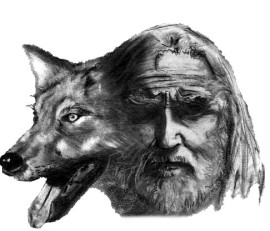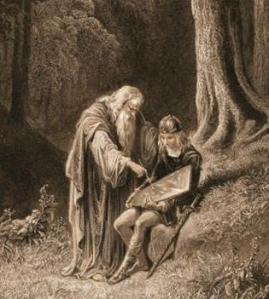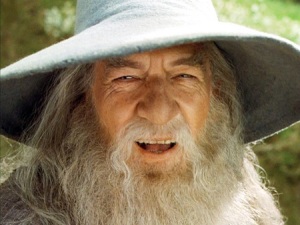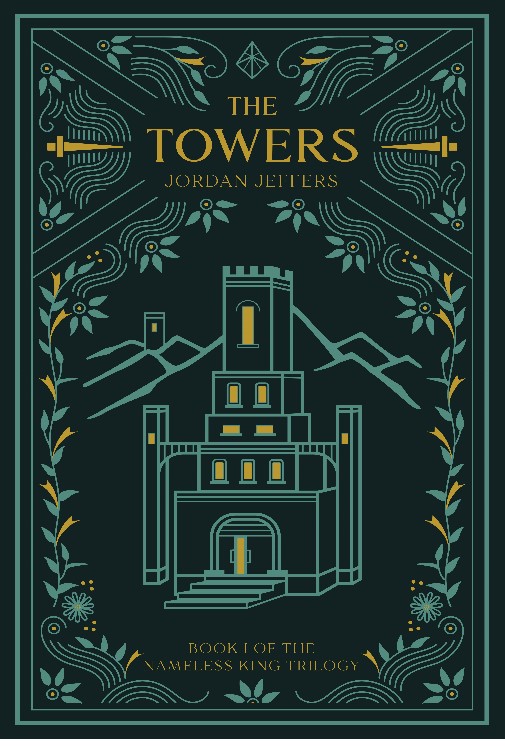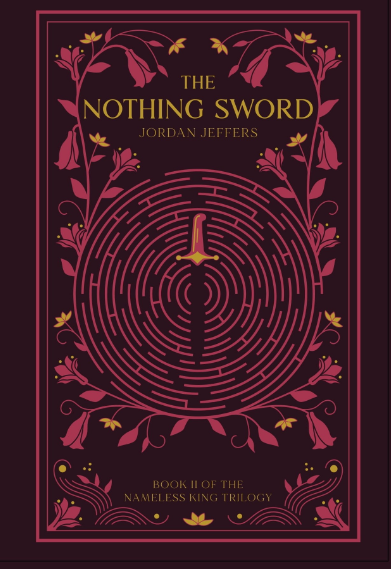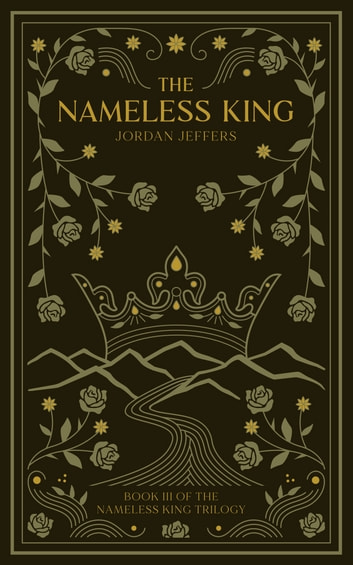Note: Some of you may recognize this series from my old blog, "Whispers in the Earthquake." I'm working on a novel at the moment and have decided to repost some older stuff for the next four weeks to give myself more time with it. I think it still holds up. In fact, I guarantee you'll love it, or your money back.
Our quest is nearly over! In case you missed it, this is the fourth and final installment of my wife-acclaimed, overly-thought-out Wizard Series. As I'm sure you all remember, we started this journey by discovering The Wizard Rules, narrowing our pool of candidates to an elite group of "true-wizards." We then delved deep into the intricacies of The MERLINS Scale, the original (and still the best!) arbitrary, seemingly objective ranking system for all true-wizards.
After an exhaustive scoring of every wizard known to (this particular) man (aka me), we finally determined The Ten Greatest Wizards.
Part 1 of this list covered Wizards 10 - 6. We are now ready to present Part 2 (or Part 4?), the best of the best, the top five, the wisest, funniest, most famous, most powerful, best told, best dressed magic mentors in all of fiction.
For those of you who need a review (though I can't imagine why, the system is so simple!) the MERLINS Scale is scored out of a maximum 70 points, and consists of the following categories:
- Magic – The sum of a wizard’s Raw Power (what they can do, abbreviated RAP) and Relative Power (what everyone else can do, abbreviated REP): 15 points
- Exploits – Adventures, deeds, and other risky and unexpected undertakings: 10 points
- Raillery – The funniness of a wizard: 10 points.
- Looks – Appearance and style: 5 points
- Intellectum – The measure of a wizard’s wisdom: 5 points (I've had a few people ask, so in case you are wondering why I chose "Intellectum" instead of "Intellect," it's because Intellectum sounds more wizard-ish.)
- Normalishness – A made-up word roughly defined as “the extent to which you would enjoy yourself splitting a six pack with this guy/gal over a ballgame”: 10 points
- Story – The quality of the story in which the wizard appears: 15 points
In addition to the honor of a high ranking, I've also decided to give out special awards this time. You can think of them like high school yearbook awards for wizards. They're all totally meaningless, so they fit in perfectly. So without further ado, I present the first (fifth) candidate on our list...
5. Sparrowhawk
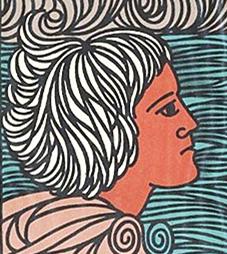
Actual photograph of Sparrowhawk
MERLINS: Magic: 15/15 (12 RAP, 3 REP), Exploits: 10/10, Raillery: 5/10, Looks: 5/5, Intellectum: 5/5, Normalishness: 5/10, Story: 9/15 = 54 points
Awards: Token Minority Award, Pseudo-Hero Award, My Name is Two Birds Award
The Story of Sparrowhawk
Sparrowhawk is the main protagonist of Ursula Le Guin's Tales of Earthsea, a series of five novels and half a dozen or so short stories focusing on the magical fantasy land of...wait for it...you'll never guess the name...Earthsea! He has the honor of being the only non-white wizard on our list, unless you count Yoda of course.
The story of Sparrowhawk begins on his home island of Gont. After raising goats for a while, his incredible magical talent is discovered by Gont's resident wizard, Ogion - sort of like Scooter Braun and Usher discovering Justin Bieber, only with magic and goats involved. (It's actually more lame that I know Justin Bieber's story then that I know Sparrowhawk's. Point being, as always, that I'm pretty lame. And that wizards are cooler than pretty-boy pop stars.)
Ogion eventually sends Sparrowhawk to a magical school for wizards on another island called Roke - there a lot of islands in Earthsea. It's here that Sparrowhawk gets a little too big-headed and opens a door to the land of the dead, accidentally unleashing a shadowy demon that scars him for life and kills his teacher, the noble and powerful Archmage of Earthsea. Whoops!
The rest of the first novel tells the story of Sparrowhawk's attempts to defeat this demon, which he finally does. At this point he turns from young hero into true-wizard. Thus in subsequent novels, the main protagonist shifts away from Sparrowhawk to several different characters which Sparrowhawk then advises and helps in one form or another.
Sparrowhawk eventually becomes the Archmage himself, recovers a magical, long lost rune of peace, closes another doorway to the land of the dead, and finally settles down on Ogion's old farm to raise goats and care for his half-human, half-dragon daughter. I'm assuming Justin Bieber will probably grow up to do something similar.
Sparrowhawk's Coolest Power
Crossing into the land of the dead
Magic in Earthsea is based on the ancient and powerful "Old Speech," which is basically an ancient spell language. It's also randomly capitalized, and you know something is important in fantasy when it is randomly capitalized. The Old Speech isn't particularly flashy, but if you're interested in controlling the weather, talking to dragons, or turning yourself into a bird, then you'll love it. I should mention that there is a very slight danger that if you don't turn back into a human quickly enough you will completely forget who you are and go on living like a bird for the rest of your life...but all magic has a little risk right?
Sparrowhawk's most unique power is his ability to cross into the Dry Land (random capitals!), which is the name of Earthsea's extremely depressing land of the dead. The Dry Land has everything you'd ever want in a land of the dead, including:
- Low valleys
- Shadows
- Dust
- Mountains of Pain (capitals!)
- Thousands of mindless souls with no memory of their former lives wandering around silent cities underneath a sky of perpetual darkness, pricked with thousands of dim, unmoving stars.
- Daily speeches by Senator Joe Lieberman
OK, so I made that last one up, but seriously, if we were picking a current political leader to give speeches in an endlessly dusty, boring, and painful land of the dead, we'd pick Lieberman right? Right? Do I need to link a Youtube video of Lieberman discussing the public health care option to convince you?
Sparowhawk's Wisest Wisdom
They have nothing to give. They have no power of making. All their power is to darken and destroy. They cannot leave this place; they are this place; and it should be left to them. They should not be denied nor forgotten, but neither should they be worshiped.
The Earth is beautiful, and bright, and kindly, but that is not all. The Earth is also terrible, and dark, and cruel. The rabbit shrieks dying in the green meadows. The mountains clench their great hands full of hidden fire. There are sharks in the sea, and there is cruelty in men’s eyes.
And where men worship these things and abase themselves before them, there evil breeds; there places are made in the world where darkness gathers, places given over wholly to the Ones whom we call Nameless, the ancient and holy Powers of the Earth before the Light, the powers of the dark, of ruin, of madness.
They exist. But they are not your Masters. They never were. You are free, Tenar. You were taught to be a slave, but you have broken free.
-The Tombs of Atuan, by Ursula Le Guin
Sparrowhawk's Greatest Moment
Sacrificing his power to save Earthsea
In the third novel of the series, The Farthest Shore (1972), a bad-guy sorcerer named Cob tries to make himself live forever by saying a bunch of really evil Old Speech. Turns out this is not such a good thing, since it opens up a hole between Earthsea and the Dry Land. All of the magic in Earthsea starts leaking away, and it's up to Sparrowhawk and Arren, the future king of Earthsea, to stop him.
Spoiler alert! They stop him.
After chasing Cob for most of the book, Sparrowhawk and Arren finally confront him in the land of the dragons, managing to kill his living body with the aide of one of the oldest dragons, Orm Embar. A small, pitiful, mostly dead version of Cob (think Voldemort pre-Goblet of Fire) then crawls away into the Dry Land, with Sparrowhawk and Arren hot on his tail. The three men manage to cross the whole of the Dry Land and climb the Mountains of Pain, where Sparrowhawk confronts Cob a second time and defeats him.
The hole between Earthsea and the Dry Land is still open, however, so Sparrowhawk does the whole selfless thing and sacrifices all of his powerful magic to close the hole and save the world. He becomes merely human so that magic as a whole might survive. Pretty cool right? I'm thinking of naming my first child Sparrowhawk "Orm Embar" Jeffers in honor of this accomplishment. Madelyn will talk herself into it eventually.
4. Belgarath the Sorcerer
The weirdest set of conjoined twins in history
MERLINS: Magic: 13/15 (12 RAP, 1 REP), Exploits: 10/10, Raillery: 10/10, Looks: 5/5, Intellectum: 5/5, Normalishness: 9/10, Story: 4/15 = 56 points
Awards: Single Father Award, Most Likely to Turn into a Wolf Award, Most Likely to Walk Off with a Case of Beer from Your Fridge after a Party Award
The Story of Belgarath the Sorcerer
Anyone interested in an immortal wizard who orchestrates the triumph of Light over Darkness over the span of 6000 years, manipulating kingdoms, prophesies, and bloodlines to bring to power the last true god? How about a drunk criminal who selfishly abandons his two daughters directly after the death of their mother and spends years drinking himself into oblivion and having sex with prostitutes?
Then Belgarath the Sorcerer is for you!
Belgarath is the second wizard to make it on this list from David and Leigh Eddings Belgariad series, joining his daughter Polgara, who came in at number eight. As I mentioned in my description of Polgara, there are over 5000 pages in the Belgariad / Mallorean Cycle, so a short summary of Belgarath's life and times is basically impossible.
Belgarath is powerful, drunk, wise, poorly dressed, funny, horny, and loving. He tells great stories. He has a short temper. He gets married to a wolf. He's described once as a "drunken lecher with scant morality and little seriousness." He's like a bachelor uncle that your parents never want you to stay the night with, but for some reason he'd be the one they would trust to raise you if they died and you needed to be adopted. I swear that's the best I can explain it.
If you're keeping track, then, I've described Polgara as "the sassy aunt you've always wanted" and Belgarath as "the bachelor uncle your parents (dis)trust." I'm not sure what this means, but let's pretend I made a clever joke and move on.
Belgarath's Coolest Power
Sun illusion
Belgarath's sorcery works through a technique which he calls "the Will and the Word." (capitals!) It's a fairly simple system. Those born with the gift of magic simply Will something to happen and then speak a Word which releases the power of their Will onto the world. The Word is not particularly important; the key is to form one's Will clearly and purposefully, so that one's imagination is actually the most important factor in carrying out powerful magic.
The drawback (and isn't there always a drawback?) is that there are physical effects on Belgarath's body whenever he uses magic, almost to the point where it drains his energy as if he had accomplished the magical task physically. I'm not sure what the physical toll on your body would be from doing something like... say... making an illusion of the sun come up so that a bunch of magicians who are sending hordes of demons at you get distracted and lose control of their demons who then turn around and start eating their former masters... But that kind of thing isn't ever really resolved.
Belgarath's Wisest Wisdom
Have you ever noticed that? We base our assessment of the intelligence of others almost entirely on how closely their thinking matches our own. I’m sure that there are people out there who violently disagree with me on most things, and I’m broad-minded enough to concede that they might possibly not be complete idiots, but I much prefer the company of people who agree with me.
You might want to think about that.
-Belgarath the Sorcerer, by David and Leigh Eddings
Belgarath's Greatest Moment
Duel with Ctuchik
Belgarath has his finger in so many pies and does so many things, that eventually everything kind of runs together, making it hard to pick out one particularly great moment. The one moment I still remember clearly after eight or nine years is Belgarath's duel with the evil sorcerer Ctuchik. (Another thing I love about fantasy - It's OK to give important characters names that no one can pronounce). It's a fairly standard titanic battle of wills, culminating in Ctuchik's panicked scream of "Be Not!"
In the Belgariad, it's a big faux pas to try to will something out of existence like that. The Universe (capitals!) doesn't like it at all, and Ctuchik's attempt ends up about as well as Voldemort's repeated attempts to use the Avada Kedavra curse on Harry. The spell backfires, and Ctuchik winks out of existence instead. Fun times.
3. Merlin
Merlin putting the finishing touches on the world's first paint-by-number
MERLINS: Magic: 14/15 (12 RAP, 2 REP), Exploits: 10/10, Raillery: 9/10, Looks: 5/5, Intellectum: 5/5, Normalishness: 4/10, Story: 13/15 = 60 points
Awards: Wizard with a Thousand Faces Award, Democracy Award, Homewrecker Award
The Stories of Merlin
The story of King Arthur's most famous magical adviser is impossible to tell, mostly because there are now hundreds, if not thousands of stories in which Merlin appears (OK maybe not thousands). He's one of the most frequently reused characters in fiction, joining the likes of Merlin's protege King Arthur, Dracula, and Satan (though strangely not God or Jesus).
I'm an English major, but I'm not a literary scholar or historian, so I really can't describe the impact that Merlin has had on the Western literary world. Let's just call it "unknowable" and let it go at that.
The "traditional" story is this:
A long time ago, in an island 3963 miles away, Uther Pendragon is named as heir to the throne of Britain. He sets his eye on a pretty girl named Igerna, and he likes the way she eyes back if you know what I mean. Unfortunately, Igerna happens to be married to another powerful lord by the name of Gorlois. Gorlois isn't real happy with Uther's roving eye, and the two fight a big battle to decide who gets to sleep with her (apparently asking Igerna who she preferred was out of the question).
Uther asks Merlin for help, and so Merlin casts a spell on Uther that makes him look like Gorlois. (Merlin, by the way, is the offspring of a demon and a human woman, hence his great powers. Funny how often that little tidbit gets ignored in most subsequent stories) Using Merlin's disguise, Uther slips into his enemy's castle and sleeps with Igerna. By a happy coincidence, Gorlois is killed that same evening, and Igerna and Uther can get married.
Igerna gives birth to Arthur, who Merlin educates and guides. Merlin eventually convinces Arthur that once he is king he should eat at a Round Table (capitals!) because it will be easier to play poker on it after dinner. He also tells him to drive off all of the invading Saxons and convinces him to go look for something called the Holy Grail (capitals!). Merlin does some magic stuff to help Arthur do all of this, mostly by involving shape-shifting into different animals.
Eventually, however, things start going down hill. Arthur drunkenly bets his wife Guinevere in a late night poker game, loses to Lancelot, and then gets all pissy the next morning and claims not to remember the bet. Then Lancelot sleeps with Guinevere anyway, Arthur sleeps with his half sister Morgan le Fay, and Merlin falls in love with the Lady of the Lake (capitals!). But he doesn't get to sleep with her until he teaches her all his magic, so he does so. In return for this precious knowledge, the Lady traps him in the trunk of a tree for the rest of eternity, which probably has my vote for the worst break up ever. Without Merlin, Arthur gets killed by his incest-produced son, and the whole tragedy comes to a tragic end filled with tragedy.
Merlin's Coolest Power
Prophecy
Merlin is usually exceptionally good at predicting the future, often delivering long, extremely detailed predictions like this one:
Fly the fire of the sons of Boring, if you are able to do it: already they are fitting out their ships; already don't read this are they leaving the Armorican shore; already blah blah blah out their sails to the wind. They will steer towards Britain; they will invade the Saxon nation; they will subdue that wicked people; but they will first go out for ice cream shut up in a tower. To your own ruin did you prove a traitor to their father, and invite the Saxons into the island. You invited them for your safeguard; but they came for a blah blah blah. Two deaths instantly threaten you; nor is it easy to determine which you can best avoid. For on the one hand I'm really boring lay waste your country, and endeavour to kill you; on the other shall arrive the two brothers, Aurelius Ambrosius and Uther Pendragon, blah blah blah to revenge their father's murder on you. Seek out some refuge if you can: to-morrow they will be on the shore of Totness. The faces blah blah blah shall look red with blood, Hengist shall be killed, and Mickey Mouse shall be crowned. He shall bring peace to the nation; he shall blah blah blah die of poison. His brother blah blah blah Pendragon shall succeed him, whose days also shall be cut short by poison. There shall be blah blah blah commission of this treason your own issue, whom the boar of Cornwall shall devour a bacon cheeseburger and thus commit cannibalism.
- History of the Kings of Britain by Geoffrey of Monmouth, slightly adapted.
Riveting right? I really hope you didn't read that whole thing.
Merlin's Wisest Wisdom
The best thing for being sad," replied Merlin, beginning to puff and blow, "is to learn something. That's the only thing that never fails. You may grow old and trembling in your anatomies, you may lie awake at night listening to the disorder of your veins, you may miss your only love, you may see the world about you devastated by evil lunatics, or know your honour trampled in the sewers of baser minds. There is only one thing for it then - to learn. Learn why the world wags and what wags it. That is the only thing which the mind can never exhaust, never alienate, never be tortured by, never fear or distrust, and never dream of regretting. Learning is the only thing for you. Look what a lot of things there are to learn.
- The Once and Future King, by T.H. White
Merlin's Greatest Moment
Building Stonehenge
According to Geoffrey of Monmouth (people had names like that in the 12th century) Merlin built Stonehenge in the 4th century. Originally the rocks of Stonehenge were erected by giants in Ireland, who had brought the stones from Africa because of their unique healing properties. Uthur decided those Irishmen didn't need that magical healing as much as his people did, so he sent Merlin to move the whole monument to Britain, which Merlin promptly did (after slaughtering a bunch of Irishmen of course).
It's been 900 years or so since Geoffrey wrote his version of the building of Stonehenge, and modern scientists haven't really come up with a more plausible story for how it was built. So I'm sticking with the Geoffrey.
2. Albus Percival Wulfric Brian Dumbledore
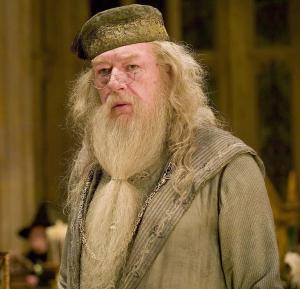
"And now Harry, let us step out into the night and pursue that flighty temptress, adventure."
MERLINS: Magic: 15/15 (12 RAP, 3 REP), Exploits: 8/10, Raillery: 10/10, Looks: 5/5, Intellectum: 5/5, Normalishness: 6/10, Story: 12/15 = 61 points
Awards: Most Stylish Award, The Benevolent Machiavellian Award, The Only One He Ever Feared Award
The Story of Dumbledore
Since I'm pretty sure that most of you know Dumbledore's story better than the current President's, I won't bore you with a rehash of it here. But I do want to deal with one rather controversial thing before moving on: J.K. Rowling's assertion that she always thought of Dumbledore as gay.
I'm of two minds about this. On the one hand, this makes total sense, especially given Dumbledore's love of slightly over-the-top clothes and knitting patterns. It also puts a whole other level of depth to his relationship with Grindewald, since you can definitely envision a scenario where Dumbledore's crush on the handsome young foreigner would cloud his better judgment and blind him to Grindewald's darker side (who can resist that accent?).
On the other hand, there's not really anything in the books that would indicate with any certainty what his sexual orientation is. So while I'm inclined to think that it would make the books more interesting, I can't really argue that Dumbledore is gay. Of course, it shows you how much these characters mean to people when we start debating the sexual orientation of a fictional, 100+ year old wizard from a bunch of children's books. 450 million copies sold will do that for you.
Dumbledore's Coolest Power
Love
Sappy I know, but I will defend myself by pointing out that love is actually a real form of magic in the Hogwarts universe, to the point where a concentration of love is constantly kept under lock and key in the Department of Mysteries.
I gave Dumbledore the "Benevolent Machiavellian Award" because he's often uses an odd combination of loving manipulation. He's constantly pulling strings, making alliances, hiding the truth from people when it suits him, and leaving obscure clues for the heroes to follow after his death. Usually when somebody does morally ambiguous things in a fantasy novel it comes back to bite them in the ass later, and we learn a valuable the lesson about always telling the truth or whatever.
That never really happens to Dumbledore though. We love him pretty much from start to finish, or at least I did. When Harry was getting mad at him halfway through book seven, I was getting mad at Harry. "CAN'T YOU SEE THAT DUMBLEDORE LOVED YOU!" I screamed (OK not really). I still loved Dumbledore because I believed that he genuinely loved and cared for everyone, even if he made mistakes.
And that, without a doubt, was his greatest strength.
Dumbledore's Wisest Wisdom
That which Voldemort does not value, he takes no trouble to comprehend. Of house-elves and children’s tales, of love, loyalty, and innocence, Voldemort knows and understands nothing. Nothing. That they all have a power beyond his own, a power beyond the reach of any magic, is a truth he has never grasped.
- Harry Potter and the Deathly Hallows, by J.K. Rowling
Dumbledore's Greatest Moment
Dying
OK so I know that normally we wouldn't put "Dying" on the list of anyone's greatest moments, but hear me out on this. Dumbledore basically has four "great" moments. Two of them, his discovery of the twelve uses of dragon blood and his defeat of Gellert Grindelwald, do not appear in the books so I can't really put them in here.
That leaves us deciding between Dumbledore's duel with Voldemort in the Ministry of Magic and Dumbledore's fall from Hogwarts tower. Let me argue for the Death (self-created capitals!) for just a second.
- It was the most memorable Dumbledore moment, and probably the most memorable moment in the whole Hogwarts series.
- It epitomized everything great about Dumbledore's character, including:
- His ability to manipulate things behind the scenes
- His willingness to give people a second chance
- His love of his students, especially Harry
- All of the final plot lines leading to the defeat of Voldemort depended entirely on the Death, and unraveling the mystery of those final events on the tower was the most satisfying bit of writing in the whole series.
I'm not going to call you crazy if you pick the duel instead (it was a pretty awesome duel), but the Death says way more about Dumbledore's character than anything else.
As I mentioned in The Wizard Rules, I can't really fault you for picking Dumbledore as number one if you've never read Lord of the Rings. I think he's a phenomenal wizard: wise, funny, powerful, everything. But as great as he is, he's still a copy. There's no shame in that really. He's a wonderful copy, maybe even a more popular copy (though that's debatable), but he's still a copy.
A copy of the Greatest Wizard of All Time...
1. Gandalf
Gandlaf the Grey smiles upon receiving the Greatest Wizard of All Time Award
MERLINS: Magic: 14/15 (12 RAP, 2REP), Exploits: 10/10, Raillery: 9/10, Looks: 5/5, Intellectum: 5/5, Normalishness: 6/10, Story: 15/15 = 64 points
Awards: Best Fireworks Award, Most Aliases Award, The Greatest Wizard of All Time Award
The Story of Gandalf
What is there to say? The story of Gandalf is as widely known as any wizard save Dumbledore, and that mostly by choice, as Tolkien only reveals parts of Gandalf's story in the less well read Silmarillion and Unfinished Tales, and simply leaves other parts to the imagination.
So since I have nothing to write about this, let's ask a really meaningless question. How about this: If you were naming thirteen kittens, would you rather give them Gandalf's thirteen names or the names of the thirteen dwarves from the Hobbit? In case you've forgotten, don't know, or don't care, the dwarf names are Ori, Dori, Nori, Fili, Kili, Bifur, Bofur, Bombur, Dwalin, Balin, Oin, Gloin, and Thorin Oakenshield. Gandalf's names are Greyhame, Stormcrow, Olórin, Incánus, Tharkûn, Lathspell, Mithrandir, Gandalf the Grey, The Grey Messenger, The Grey Pilgrim, The Grey Fool, Gandalf the White, and The White Rider.
I'd probably go with the dwarves, mostly because you'd need a lot of grey cats for Gandalf's names to make any sense. Though I admit it would be pretty fun to pick up a kitten and say, "Late is the hour at which this kitten chooses to appear. Lathspell I name him, ill mews is an ill guest."
Ok I'll stop. I swear that bit sounded funny in my head when I wrote it. Let's move on.
Gandalf's Coolest Power
Flood of the Bruinen
This is actually a tough one. You don't realize this when you're reading the books or watching the movies, but Gandalf doesn't actually use magic all that much. He blows cool smoke rings, fights like a badass, and shoots off fireworks that take the shape of dragons, but most of his power seems to be "hidden in the margins" so to speak, not out in front of you. His most impressive feats of magic usually occur out of the narrative flow of the story, so in the books we get hints of a massive magical fight with the Ring Wraiths, with Saruman, and with the Balrog, but we don't actually get to see a lot of it.
My personal favorite is the Flood of the Bruinen. You probably remember this from the movies, even though you don't know it by that name. So think back. Remember that part in Fellowship of the Ring when the nine black riders are chasing Frodo and Arwen on the way to Rivendell, and Frodo's eyes are glazing over like he just chained smoked four or five joints in a row? (Not that I know anything about weed, but people usually make jokes like that, so I thought I'd try one. My guess is that no one really "chain-smokes" joints, but again, I have no idea.)
Arwen finally beats the black riders to the Bruinen, at which point they stupidly enter the river and get crushed by a wall of water taking the shape of horses.
In the movie it appears as if Arwen is commanding this flood, but in the books it's the work of Elrond and Gandalf. Here's how Gandalf explains it to Frodo:
"Who made the flood?" asked Frodo.
"Elrond commanded it," answered Gandalf. "The river of this valley is under his power, and it will rise in anger when he has great need to bar the Ford. As soon as the captain of the Ringwraiths rode into the water the flood was released. If I may say so, I added a few touches of my own: you may not have noticed, but some of the waves took the form of great white horses with shining white riders; and there were many rolling and grinding boulders. For a moment I was afraid that we had let loose too fierce a wrath, and the flood would get out of hand and wash you all away. There is great vigour in the waters that come down from the snows of the Misty Mountains."
Here's what I love about Gandalf. He's not content with just unleashing a raging flood to destroy the servants of Sauron, he also has to add "a few touches of his own," just to take everything to a whole other lever of cool. That's just the way he rolls.
Gandalf's Wisest Wisdom
Pity? It was pity that stayed Bilbo's hand. Many that live deserve death. Some that die deserve life. Can you give it to them, Frodo? Do not be too eager to deal out death in judgment. Even the very wise cannot see all ends. My heart tells me that Gollum has some part to play yet, for good or ill before this is over. The pity of Bilbo may rule the fate of many.
-The Fellowship of the Ring, by J.R.R. Tolkien
Gandalf's Greatest Moment
True story: Some engaged friends of ours came over this summer for dinner, and while we were talking afterwards, my wife brought up my wizard staff. My wizard staff is a five and a half feet tall staff of polished, amber colored wood, knotted and blackened in places by the natural grain of the board it was made out of. I got it in fourth or fifth grade as part of a Halloween wizard costume, together with a long black and purple robe, a golden rope belt, and a ridiculous dragon-molded skull cap.
I absolutely loved this wizard costume. I loved it so much, actually, that I proceeded to wear it every year for four consecutive years, adding a little bit of flair every year. I only stopped because I hit that age where I was too cool to go trick-or-treating but too genuine to start wearing ironic costumes.
I kept the staff, though, and brought it with me to our new apartment when Madelyn and I got married. Sometimes I hold it when I need to think, like Tom Cruise holds his bat in A Few Good Men. I get compared to Tom Cruise a lot actually.
For some reason Madelyn brought this up (the staff, not the Tom Cruise part), and our guy friend asked to see it. So I got it out of the library / spare bedroom and handed it to him.
Question: What did he do with it?
Answer: The same thing that every single other person would do with it.
He planted his feet wide, raised the staff over his head, slammed it to the ground and said... what did he say everybody... come on... you know it.... say it with me....
He reenacted the greatest moment in the wizard universe, the fantasy geek equivalent of Michael Jordan crossing up / pushing off Bryon Russel in the '98 Finals Game 6 and rising up for the game winner.
Gandalf is kind of like the Michael Jordan of wizards, actually. Both men are the greatest ever at what they did. Both men redefined their fields such that everyone that has ever followed after them is judged based on how close they come to their high standards. Both Gandalf and Michael Jordan took us to the absolute peak of entertainment awesomeness.
But most of all, they were just so amazing that everyone who ever experienced them in action is, on some level, always trying to recreate that experience. Dumbledore came the closest that anyone has ever come to actually doing it. But awesome as Dumbledore is, his MERLINS Score is probably closer than it should be.
Because, like with Jordan, it's not really about the numbers. It's about the swooping feeling in your stomach; the burning spark in your mind; the eight-year-old kid throwing lightning bolts at his action figures; the twenty-four-year-old grad student slamming a polished staff into the carpet of his apartment living room and snarling Your dark fire will not avail you!; the grad student's wife climbing into the car when they are late for something and saying Show me the meaning of haste; the moments that stick with you as the years go by.
The Purpose of a Wizard
So, did we learn anything from all this? I set out trying to capture everything that I loved about wizards, but now that I get to the end, I'm sort of left wondering if I didn't miss the point entirely.
It's fun to debate and rank and analyze wizards, but in a way it kind of misses the most important thing. Story tellers don't create wizards to score highly on the MERLINS Scale. Of course, this is mostly because they've never heard of it, but it's also because they know that wizards aren't awesome because they shoot lightning or wear pointed hats or make witty jokes or say wise things.
A wizard is awesome because a wizard carries a light along the blackest of roads, and keeps hope alive until the dawn breaks.
That's right. I just got poetic on you. Say this phrase again, out loud.
A wizard carries a light along the blackest of roads, and keeps hope alive until the dawn breaks.
That's it. That's the purpose, awesomeness, and ultimate judgment of every wizard, all rolled into one sentence. Aren't you glad you read this far to find that out?
And there is no one, no one, I would rather follow more than Gandalf the Greyish White, just like there is no one I would rather start a team with more than Michael Jordan. And until there is, it doesn't really matter what the MERLINS score tells us. All the other wizards must graciously step aside.
Gandalf rules them all.
Other essays in the Wizard Series
Part 1 – The Wizard Rules | Part 2 – The MERLINS Scale | Part 3 – The Ten Greatest Wizards (10-6)
Jordan Jeffers wishes he had more wizard essays to give you, but sadly this is it for now. Feel free to give him electronic encouragement via the little Facebook and Twiiter buttons below. It means more to him than you might think.
